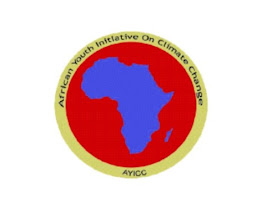THE IPCC’S FIFTH ASSESSMENT REPORT
The IPCC Conference in this report was held on 31st July - 1st August 2014 at the Safari Park hotel. Organizations present included; PACJA, KCCWG, Ministry of environment and natural resources, KEMRI, Kenya Meteorological Service, Kenya Association of Manufacturers and us (AYICC-Kenya).
Theme: What does it mean for Kenya’s development?
The IPCC (Intergovernmental Panel on
Climate Change) works to produce the most comprehensive assessment reports on
climate change across the globe. The reports review the scientific evidence on
the trends and causes of climate change, the risks to human and natural systems
and options for adaptation and mitigation. The IPCC has working groups that
published the reports for the Fifth Assessment Report. These groups are:
- Working Group 1(physical Science of Climate Change)
- Working Group2 (Impacts, Adaptation and vulnerability)
- Working Group3(Climate Change mitigation)
Adaptation of climate change is a
priority while its mitigation is considered a long-term process when it comes
to climate change impacts. Some of the discussion points of the meeting
included:
- Kenya’s climate change pathway, vulnerability, trends and impacts
- Best practices in building climate resilience and climate change adaptation
- Kenya’s low carbon climate resilient development opportunities
- How to pay for climate action.
It has been found that 76% of people in Kenya only wait for the government to act on climate change. Both the
community and the government have a big role to play in adapting and mitigating
climate change. Indicators of climate change include temperature rise, decrease
in annual rainfall trends, and change in seasonal rainfall patterns.etc
The common impacts of climate change are poverty, insufficient energy, limited food, insecurity, conflict of
resources, economic insecurity, increased migration, compromise of culture and
identity, increase in waterborne diseases, increased rate of mortality and
morbidity and shift in patterns of disease carrying mosquitoes and ticks among
others.
The elderly, physically challenged,
women, children and the youth are more vulnerable to climate change impacts. The
community has more to say than it can do. The youth have been urged to act and
also speak out on matters arising from climate change as they are important
stakeholders. The public opinion should influence policy. There are so many
activities that the youth can engage in adapting and mitigating climate change.
These may include:
- Seeking equitable services
- Organizing of community based networks
- Engaging in decision making
- Demand for government action
- Involvement in national and international opportunities
Best practices learnt/proposed for building climate change resilience were:
- Low carbon development has been noticed in Kenya thus people are turning out to use methane
- There should be a great way of having information disseminated so that it could reach people in large numbers
- Important milestones should be introduced. For example the various environmental awards like NETFUND
- Introduction of environmental programmes in communities as well as programmes.
The climate risk that has been identified and is killing so many people is Malaria. Warm areas are vulnerable to mosquitoes. This is an area of concern among many African countries which should be addressed and discussed immediately.
Finally, international co-operation is vital to avert dangerous climate change and African government can promote ambitious global action. AYICC Kenya should strive for the best in combating climate change. Participation matters.

Great materials! I really enjoyed while reading! Such environmentally friendly schools are really rare nowadays. I am happy that you still do your great work. Thank you for it!
ReplyDeleteThe IPCC’s Fifth Assessment Report provides crucial insights into global climate change, highlighting the impacts of rising temperatures, greenhouse gas emissions, and extreme weather events. Understanding this report is essential for students and researchers working on environmental studies and related projects. For those struggling to interpret the data or present it effectively in assignments, academic writing help offers expert guidance, ensuring well-structured, high-quality, and plagiarism-free academic work.
ReplyDelete